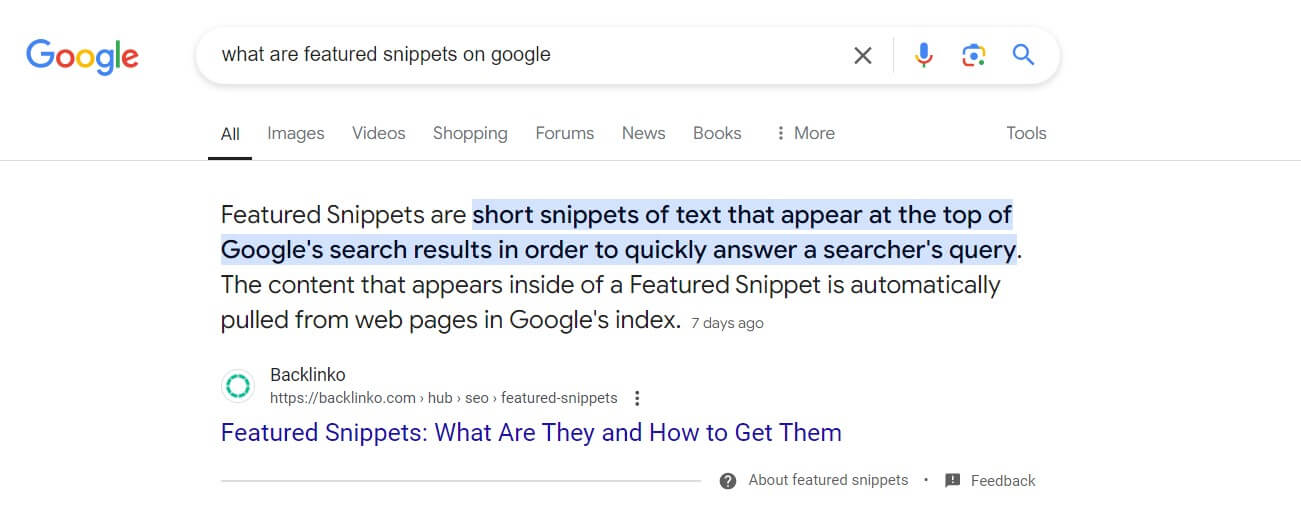Last Updated October 17, 2025
Incorporating tried-and-true SEO tactics into a company website is one of the most cost-effective ways to attract clients to your staffing agency. And yet, not every agency owner is doing it.
Those who ignore SEO are missing out on an efficient method to find leads. But for you, that means there’s an avenue to have a leg up on your competition—one that’s fairly low effort and low cost compared to other marketing and sales efforts.
However, you’re a business owner—not an SEO agency owner. You might not have the best grasp on what SEO is, what goes into building out an SEO-friendly employment agency website, and what specific strategies to apply when doing so. If that’s the case, this article will provide some helpful, entry-level tips to guarantee that you’re doing everything in your power to generate traffic to your staffing website.
What Is Staffing SEO and What Do Effective SEO Techniques Include?
Search engine optimization, or SEO, is the art of optimizing your website and content so that search engines recognize your expertise and authority within your industry.
Contrary to popular belief, this involves more than just incorporating keywords into your website. SEO includes, but is not necessarily limited to:
- Keyword strategy
- General content strategy
- Backlinking
- Competitor analysis
- User experience
- Site performance audits, such as page speed
- Other technical SEO efforts
In staffing and recruitment, this includes knowing which keywords you should be targeting to rank for (which will vary based on the niche industry you specialize in hiring for), analyzing other employment agencies who are highly visible on search engines to see what they’re doing, and ensuring your website is fast and easy to navigate for employers and employees alike.
Successful SEO efforts lead to an increase in brand awareness, traffic to your site, and, most likely, an increase in leads and sales.
That’s why focusing on SEO can be so beneficial for small employment agency owners—SEO is a low-cost way to drive sales. Sure, you can pay for ads on Google to automatically boost visibility, but there are methods to do so organically without a single dollar coming out of your budget.
10 Staffing SEO Tips to Help Generate Leads and Traffic to Your Website
Unless you come from an online marketing background or have experience in web creation or design, there’s a good chance you’re new to the world of SEO when starting a staffing agency. Therefore, we’ll keep our SEO tips for staffing agency owners relatively simple. Once you feel like you have a strong hold on these beginner and intermediate SEO tips, you can move on to learning and incorporating more advanced SEO tactics.
With that said, below are ten SEO tips every employment agency owner should implement on their website.
1. Perform Keyword Research and Outline Your General Strategy
The first step for anyone getting started with building out a business website is to perform keyword research.
While SEO is about much more than keywords, there’s no better place to start. If you aren’t yet schooled in SEO, keyword strategy and optimization is the first and most practical place to begin your learning.
In regard to SEO for staffing, what keyword research entails can vary, as there are numerous proven methods to go about doing this successfully. However, your keyword research strategy should generally cover the following:
- Having your staffing industry niche (IT staffing, medical staffing, etc.) predetermined so you can narrow your focus.
- Investing in a keyword research tool, such as SEMRush or AHRefs, that will reveal how difficult various words are to rank for and how much search volume each word has.
- Identifying who you’ll be competing against in SERP (search engine results process) and analyzing these competitors’ overall content, strategy, and keyword data to the best of your ability.
- Noting and outlining areas of opportunities, such as by identifying which keywords and topics your will-be competitors have yet to tap into.
- Creating a content calendar or plan of action, noting said areas of opportunity that are attainable for a brand-new domain like yours, and trying to “win” in those areas through creating unique content. One tip is creating a content pyramid, starting with a very general topic at the top and then breaking it down into more specific but still related topics or words.
Everyone’s keyword strategy will look a little bit different, but these strategy tips represent some ways you can begin mapping out your ideas. However, to maximize your potential when it comes to keywords, you’ll likely need to invest a bit of money into an SEO tool like SEMRush, AHRefs, or KWFinder.
2. Optimize and Deliver Quality Content Related to Your Target Niche
Imagine you’ve started a nurse staffing agency, and you’ve found a plethora of topics related to “travel nurses” that are low difficulty.
Next, you can create a dedicated blog on your website and build a content pyramid. For example, maybe you start with the general article, “How to Become a Travel Nurse.” Eventually, you can break down articles into even more distinct topics, such as “How Long Does it Take to Become a Travel Nurse” or “How to Become a NICU Travel Nurse.”
A blog is a great way to naturally begin ranking for words that will attract your desired audience to your site. In this case, you will hopefully draw existing nurses to your site and your business. After reading your article, they might notice a job posting you have, further drawing them in and hopefully adding to your pool of candidates.
No matter what content you create, do your best to strike a balance between SEO-driven and informative content. Don’t forget that the ultimate aim for any piece of content is to inform and assist the reader.
3. Don’t Forget About Meta Titles and Descriptions
First impressions are everything. If your target audience typically finds you on Google, their first impression of anything you publish is your metadata.
Metadata is what shows up as the title of any published item on Google (the meta title) and what shows up as the snippet underneath (meta description). Website hosting platforms will have a section to input metadata in each post or article. Filling this out to your liking can be another simple way to get more clicks.
4. Use Job Postings as SEO Drivers
Staffing agency owners have the luxury of job postings camouflaging as keyword magnets. To continue with our travel nurse example, if you search on Google, “NICU Travel Nurse Jobs,” the first results you see are the ones that have mastered the art of padding the job posting with keywords related to the position.
Sure, some of those top domains include the likes of Indeed and ZipRecruiter, which both have exceptionally high domain authority compared to startup staffing agencies. But there will also be lesser-known domains among the top results as well.
When you’re posting a job description for something like a travel nurse, you’ll want to include all keywords related to the normal duties of a travel nurse, so long as those will also be applicable to the specific position you’re posting for.
Other tips for SEO-driven job descriptions include:
- Optimizing your agency’s description.
- Not over-optimizing.
- Ensuring the posting isn’t simply a massive block of text but that it’s visually appealing.
- Not using dashes (Nicu Travel Nurse/Specialized Travel Nurse) in the job title—Google sometimes has trouble comprehending that!
- Taking advantage of local SEO if you have the resources (which we’ll discuss later on).
5. Include Schema Markup for Job Listings
Schema.org and TechnicalSEO.com (shown below) are free resources that offer schemas (or code) for structured data such as FAQs or how-tos in an effort to promote uniform HTML tags. It’s a fantastic resource for anybody publishing content, and it’s specifically helpful for staffing agency owners because they also offer schema for job postings in particular.

Simply fill in the details of the job posting, and then watch the tool quickly parse the data and release a script that you can copy and paste into the code of your own post. Google appreciates easily digestible code and content, so this gives you a better shot at ranking higher.
6. Get High-Quality Sources to Backlink to Your Site
There are three types of linking: internal linking, external linking, and backlinking.
Internal linking occurs when you link to another one of your own website’s domains. External linking occurs when you link outwardly to other domains not affiliated with your site. Backlinking, which is the highest-value form of linking, occurs when other domains or sources link to one of your website’s domains.
When sources that get a ton of traffic or have a really strong reputation backlink to your site, it achieves a few things:
- This signals that your staffing agency is an industry expert.
- It promotes trust in your brand and builds your website’s authority from a human perspective.
- It also builds your website’s authority from an SEO perspective, bettering your chances of ranking higher in the future.
- Finally, it increases traffic to your website, which often drives increased leads and sales.
It can take significant effort to get the absolute most out of potential backlinking efforts, but the areas of opportunity are there.
7. Use Images, Infographics, and Other Visuals Wisely
Mastering SEO doesn’t end with knowing how to produce written content that search engines will like. Creating and implementing visuals that are informative, creative, and aligned with what search engines tend to promote can be just as impactful—and the increased popularity of Google’s snippets feature is a big reason why.

For example, if you publish weekly blogs on your staffing website and are writing about the staffing and recruiting industry outlook, you could incorporate a graph showing the total worth of the U.S. staffing market and how it has changed throughout the years. Or, if you’re writing about a blog on new and emerging technologies in the industry, you could include an infographic spotlighting the names of those technologies.
By doing so, you’re giving the blog an even better chance to perform well. Google and other search engines might include your visual as a featured snippet, leading to a lot more clicks to your site.
8. Monitor Page Speed and Prioritize Overall User Experience (UX)
User experience (UX) is critical not only for SEO purposes but also for the well-being of your own business, regardless of SEO.
You don’t want users—whether potential clients or job seekers—coming to your site and having a miserable experience thanks to pages that take forever to load. Your pages should load quickly, and your website as a whole should be easy to navigate.
You can track page speed and other core web vitals through PageSpeed Insights and via Google Analytics.
9. Regularly Review Performance on Google Analytics
If you’re not tracking and analyzing your performance, then what’s really the point of investing so much time into SEO?
Using Google Analytics, PageSpeed Insights, Google Search Console, and other tools at your disposal, you can gauge how well your efforts are paying off, both in terms of your overall website and individual job postings, landing pages, blogs, and other pages.
10. Regularly Refresh Content
Your job is not entirely finished once you’ve published a piece of content. Search engines reward those who are regularly updating that content and keeping it fresh, so make sure you’re not applying a set-and-forget strategy to anything you push out on your website.
You might be required to do this naturally if you’re updating the staffing services you offer to clients or job postings to candidates. But if it’s blogs or guides you’re trying to rank for, it can be easy to forget. After analyzing and reviewing performance for various pages over time, make adjustments accordingly. There’s a good chance you’ll see an uptick in traffic.

In-Summary: Using SEO to Grow Your Staffing Agency
Finding leads for staffing agencies can be achieved through investing in SEO, yet this is something that not every business owner realizes or cares to achieve. SEO should be incorporated into the marketing strategy of every staffing agency business plan, and even if efforts aren’t successful at first, it can help drive sales over time.
Mastering staffing SEO isn’t a walk in the park, but by doing your homework, analyzing your competitors, and crafting thoughtful steps toward success, there’s a real chance your next staffing agency lead could come from your SEO efforts!
Michael McCareins is the Content Marketing Associate at altLINE, where he is dedicated to creating and managing optimal content for readers. Following a brief career in media relations, Michael has discovered a passion for content marketing through developing unique, informative content to help audiences better understand ideas and topics such as invoice factoring and A/R financing.









